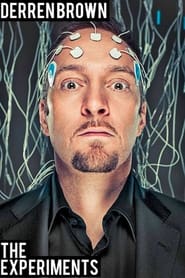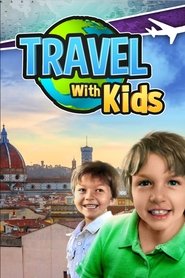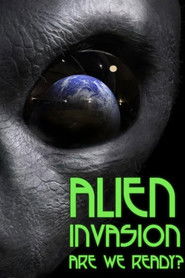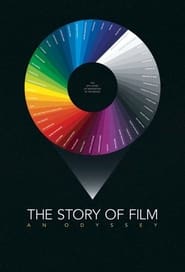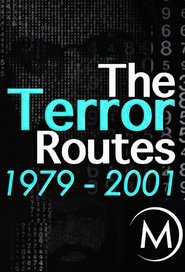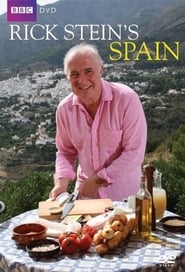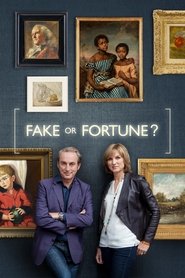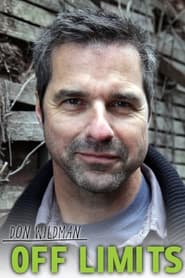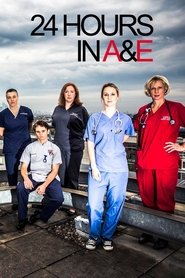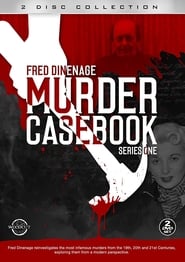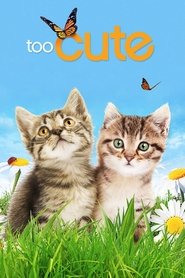New Documentary TV Series on The Roku Channel - Page 53
-
Derren Brown: The Experiments
2011
star 7.8Derren Brown uses deception as a skill to overcome common misbeliefs and fears of individuals. -
Travel With Kids
2011
Travel With Kids
2011
Travel around the world with Travel With Kids. Learn culture, history, and what to see and do together. -
Battle for the Skies
2011
Battle for the Skies
2011
The definitive film history of the RAF and one of the most visually stunning aviation series ever made. Using hours of totally unique and previously unavailable and lost archive film, exclusive air-to-air sequences and dozens of interviews with veterans, Battle For The Skies now covers everything from the early days of the Air Battalion right up to 2007. -
The Queen's Palaces
2011
The Queen's Palaces
2011
star 8.8Fiona Bruce fronts this eye-opening new three-part series on the stories behind Britain's official royal residences: Buckingham Palace, Windsor Castle and Palace of Holyroodhouse. -
Alien Invasion: Are We Ready?
2011
Military strategists and scientists present scenarios under which aliens could attack Earth and propose forms of asymmetric warfare to fight back. -
World's Most Dangerous Roads
2011
star 7.1Celebrities drive on some of the most dangerous roads around the world, tackling impossible conditions to reach their goals. -
The Story of Film: An Odyssey
2011
star 7.7A worldwide guided tour of the greatest movies ever made and the story of international cinema through the history of cinematic innovation. -
The Terror Routes
2011
The Terror Routes
2011
On September 11, 2001, all eyes were riveted on New York as the twin towers were attacked. This film explores the causes of the evil that led to the attacks, by documenting 20 years of relations between Washington, the Arab countries, Pakistan and Europe. -
Rick Stein's Spain
2011
Rick Stein's Spain
2011
star 7.5Rick Stein has visited Spain since he was a young boy. In the past, French and Italian cooking have been seen to have more finesse, but thanks to a handful of really dedicated Spanish chefs and a growing enthusiasm for its rugged flavours, that has all begun to change. According to Rick, no one cooks fish with more respect or grills meat better. Now, he travels the length and breadth of the country in an old campervan, going off the beaten track to discover the authentic soul (‘duende’) of Spanish cooking. -
Kimchi Chronicles
2011
Kimchi Chronicles
2011
Kimchi Chronicles is an American food program airing on PBS that is part travelogue, part food narrative, and part documentary of self-discovery. Host Marja Vongerichten, a Korean American-Adoptee, explores Korean food and culture, and her unique life story is told throughout the series. In the show, viewers experience Korea through Marja's distinct perspective. Each episode begins in Korea, where Marja, her husband Jean-Georges Vongerichten, and other special guests travel to different areas of Korea and taste their local foods. Then, they return to New York, where they recreate Korean recipes, specifically tailored for a modern American kitchen. Episodes cover different categories of food, providing a comprehensive overview of Korean food. The show features acclaimed chef Jean-Georges Vongerichten, actress Heather Graham, and actor Hugh Jackman and his wife, actress Deborra-Lee Furness who are also upstairs neighbors in New York City of the Vongerichten family. The show was sponsored by the Visit Korea Committ -
Fake or Fortune?
2011
Fake or Fortune?
2011
star 8.6Journalist Fiona Bruce teams up with art expert Philip Mould to investigate the provenance or attribution of notable artworks. -
Baby Hospital
2011
Baby Hospital
2011
-
Off Limits
2011
Off Limits
2011
star 8Off Limits is an American reality television series that premiered on May 16, 2011, on the Travel Channel. The series features "untold stories and secrets" of America's most iconic cities as host Don Wildman ventures and sometimes trespasses through unexplored areas where not many people have dared to go before. First season episodes aired every Monday at 9 PM EST. The second season premiered on Tuesday April 17, 2012 at 10 PM EST. For the remainder of the season, one episode aired on a Thursday at 8 PM EST while the last few episodes were burned off on Sundays at 9 AM EST. The third season premiered on Tuesday June 4, 2013 at 10 PM EST. -
Air Disasters
2011
Air Disasters
2011
star 8.2Catastrophic incidents in aviation history are meticulously reenacted, providing insight into what went wrong and if the crashes and near-disasters could have been prevented. Accounts from survivors combine with cockpit recordings and computer images to weave the gripping tales, and expert testimony reveals the hows and whys behind the events, some of which have resulted in important changes to aviation safety and regulations. -
24 Hours in A&E
2011
24 Hours in A&E
2011
star 6.7A British medical documentary set in King's College Hospital. 91 cameras filmed round the clock for 28 days, 24 hours a day in A&E it offers unprecedented access to one of Britain's busiest A&E departments. -
Fred Dinenage - Murder Casebook
2011
star 6Fred Dinenage takes a fresh look at the murders that shocked Britain in the twentieth century and the killers that committed them... Fred is the Kray's official biographer and a journalist reporting serious crimes for over forty years. He knows that with certain crimes the myth can take over from the reality of what actually happened. Fred meets with the people whose lives were affected by the crimes, experts in the case and journalists from the time. Leading criminologist Professor David Wilson features in each episode giving his valuable and fascinating insights into each killer. Using criminology, forensic science and other modern techniques, Fred dissect the crimes to understand the motive, method and impact they had then and still have even now. -
Too Cute
2011
Too Cute
2011
star 8.2Witness the miracle of cute, from a kitten's first tentative steps, to a puppy's first call to the wild. The first few months of their lives are an adorable adventure. These furry friends are simply too loveable, too curious, too cute! -
The Story of Jesus
2011
The Story of Jesus
2011
Nine of the world's leading Biblical experts re-examine the Gospel accounts of Jesus's life.
 Netflix
Netflix
 Amazon Prime Video
Amazon Prime Video
 Apple iTunes
Apple iTunes
 Apple TV Plus
Apple TV Plus
 Disney Plus
Disney Plus
 Google Play Movies
Google Play Movies
 Paramount Plus
Paramount Plus
 Hulu
Hulu
 HBO Max
HBO Max
 YouTube
YouTube
 fuboTV
fuboTV
 Peacock
Peacock
 Peacock Premium
Peacock Premium
 Amazon Video
Amazon Video
 The Roku Channel
The Roku Channel
 AMC+
AMC+
 Kocowa
Kocowa
 Hoopla
Hoopla
 The CW
The CW
 Vudu
Vudu
 Starz
Starz
 Showtime
Showtime
 PBS
PBS
 Pantaflix
Pantaflix
 FXNow
FXNow
 Tubi TV
Tubi TV
 Kanopy
Kanopy
 Comedy Central
Comedy Central
 Crunchyroll
Crunchyroll
 Microsoft Store
Microsoft Store
 Redbox
Redbox
 Sun Nxt
Sun Nxt
 ABC
ABC
 DIRECTV
DIRECTV
 Crackle
Crackle
 Fandor
Fandor
 Plex
Plex
